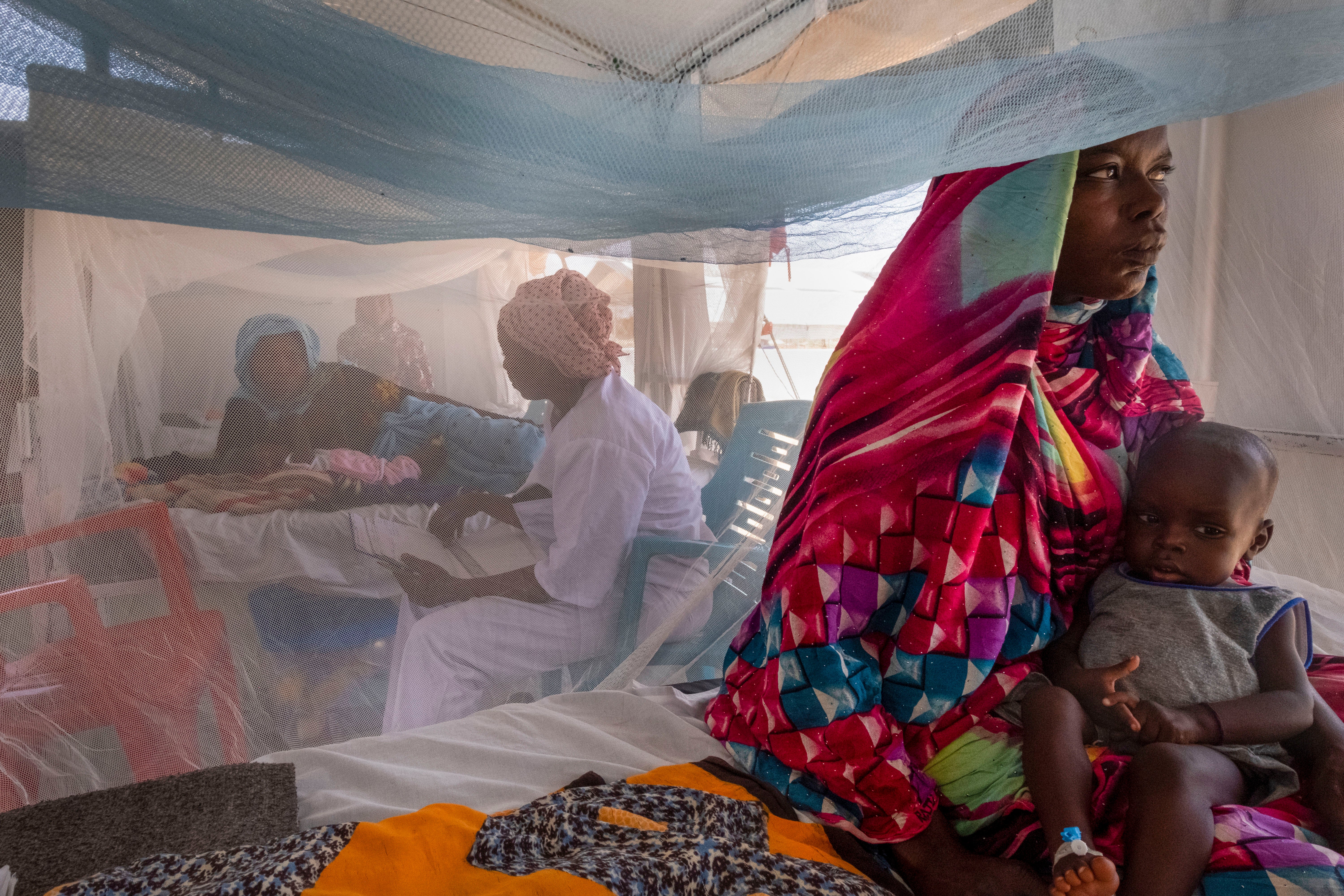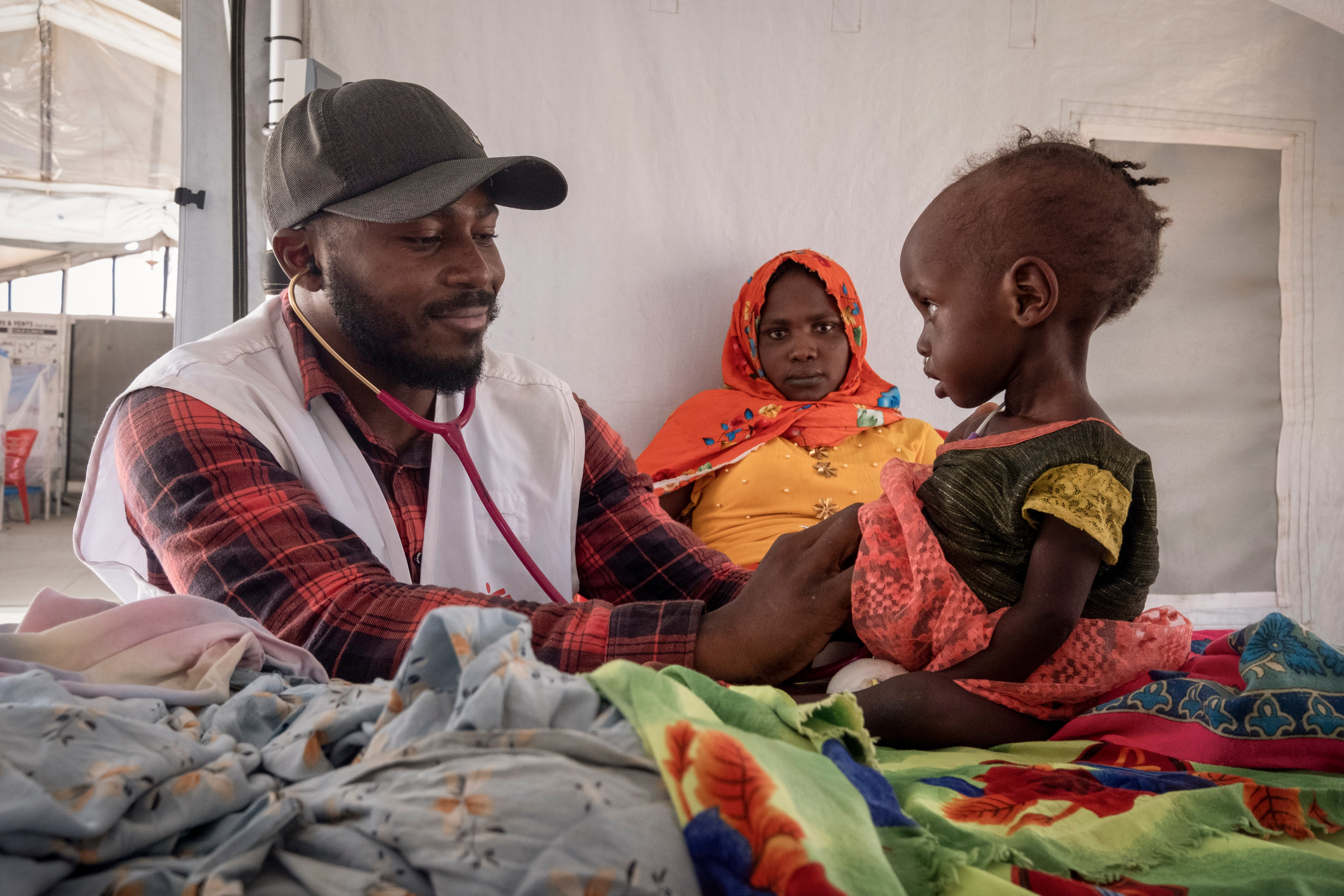Gordon Brown warns West it must stop forcing African nations to pay off debt over funding vital healthcare
Former PM says ‘I am not sure the world will ever forgive us for failing to deliver’ urgent relief
Your support helps us to tell the story
From reproductive rights to climate change to Big Tech, The Independent is on the ground when the story is developing. Whether it's investigating the financials of Elon Musk's pro-Trump PAC or producing our latest documentary, 'The A Word', which shines a light on the American women fighting for reproductive rights, we know how important it is to parse out the facts from the messaging.
At such a critical moment in US history, we need reporters on the ground. Your donation allows us to keep sending journalists to speak to both sides of the story.
The Independent is trusted by Americans across the entire political spectrum. And unlike many other quality news outlets, we choose not to lock Americans out of our reporting and analysis with paywalls. We believe quality journalism should be available to everyone, paid for by those who can afford it.
Your support makes all the difference.Gordon Brown has warned that the West may never be forgiven for not offering African countries urgent relief during the worst debt crisis in a generation.
The former prime minister’s rallying call comes as a poll shows nearly half of Britons think the UK should wipe the debts of lower income countries so the money can be used to fund hospitals, schools and tackle the climate crisis.
It follows a report which shows many African countries spent more on debt payments than on health or education last year.
Mr Brown said the findings showed the urgent need for action. “The scale of this inequality between Africans and the rest of the world is so great that I am not sure the world will ever forgive us for failing to deliver urgent debt restructuring,” he writes in a foreword to the Christian Aid report.
The study found that 34 African countries spent more on external debt payments than they did on health or education last year.
In Sudan, where millions are facing hunger, more than 10 times more is spent on external debt than on healthcare, according to the charity.

In Malawi, where just 15 per cent of children finish secondary school, twice as much is spent on debt than education.
In total African governments spent 50 times more on external debt payments than the entire UK aid budget to the continent last year.
The charity warns the continent is experiencing its worst debt crisis “in a generation”.
It has its roots in the 2008 financial crash, which led to lower growth, but was compounded by shocks including the pandemic, Russia’s invasion of Ukraine, which caused food prices to soar, and the climate crisis.
External debt payments this year are set to be the highest since 1998, researchers said – almost four times as much as in 2010.
Polling by Savanta, which was commissioned by Christian Aid, also shows 45 per cent of Britons think the debts of lower income countries should be wiped out so they can spend the money on healthcare, education and tackling the climate crisis.

The survey also found 39 per cent believe debt servicing is a perpetuation of colonialism and should be eradicated.
Mr Brown said that despite rapid improvements, Africa “is the only region expected to lag behind the rest of the world in life expectancy by 2050. The scale of this inequality between Africans and the rest of the world is so great that I am not sure the world will ever forgive us for failing to deliver urgent debt restructuring”.
He added: “In many African countries, more money is being spent on debt payments than on health or education, and so debt restructuring is a matter of life and death.”
Ahead of a general election later this year, the report calls for new legislation to ensure private lenders play their part in cancelling debt when lower income countries are in crisis.

They also want new laws to tackle predatory private creditors who lend recklessly and charge the highest interest rates.
Jennifer Larbie, the report’s author, said: “This would help create a fairer system, prevent future crises and improve the lives of millions.
“Decades after independence, many African countries are trapped in a debt crisis which is not of their making with no way out. Rather than building hospitals and schools and training doctors and teachers, they have no option but to line the pockets of predatory private creditors.”
Chief researcher for the report, Tim Jones, head of policy at charity Debt Justice, added: “Our new analysis reveals in stark terms just how much African nations are being forced to divert funding from crucial public services to pay external creditors. The figures confirm that the continent is experiencing the worst debt crisis in a generation, consigning millions to a life of poverty and ensuring the world will fail to meet the Sustainable Development Goals.”

Join our commenting forum
Join thought-provoking conversations, follow other Independent readers and see their replies
Comments